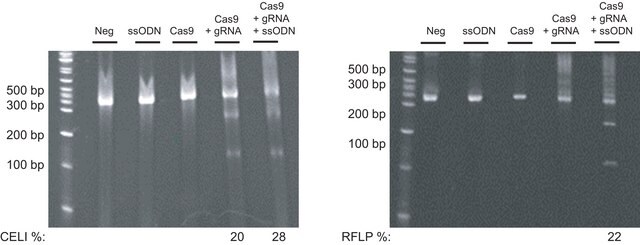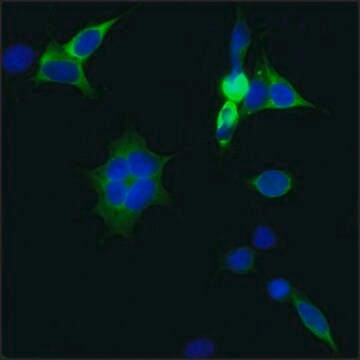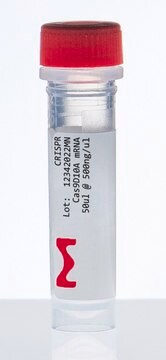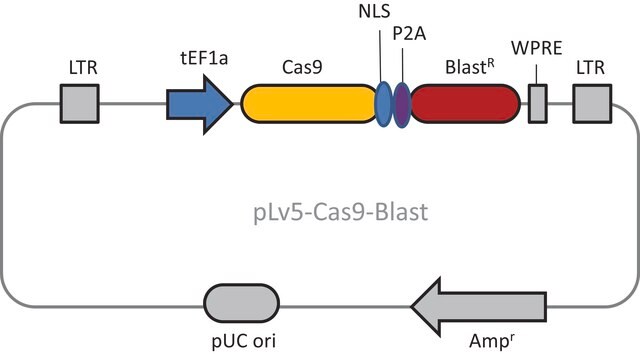CAS9PROT
Cas9 Protein
from Streptococcus pyogenes, recombinant, expressed in E. coli, 1X NLS
Synonym(s):
Cas9, SpCas9, SpyCas9
About This Item
Recommended Products
recombinant
expressed in E. coli
Quality Level
Assay
≥95% (SDS-PAGE)
form
lyophilized powder
packaging
pkg of 1 kit (3 components)
application(s)
CRISPR
shipped in
wet ice
storage temp.
−20°C
General description
Application
Biochem/physiol Actions
Features and Benefits
- Highly specific
- Highly active
- Ready-to-inject/transfect
Packaging
pkg of 250 μg (≥ 1500 pmol)
Components
- one vial of Cas9 recombinant protein
- one vial containing 1 mL of 1× dilution buffer
- one vial containing 1 mL of nuclease-free water with glycerol
Principle
Reconstitution
Other Notes
Check out our other MISSION® Cas9 Proteins at SigmaAldrich.com/CRISPRproteins
Legal Information
Kit Components Only
- Cas9-NLS from Streptococcus pyogenes, expressed in Escherichia coli
- Dilution buffer for Cas9 proteins
- Reconstitution solution for Cas9 proteins
Storage Class Code
10 - Combustible liquids
Flash Point(F)
Not applicable
Flash Point(C)
Not applicable
Certificates of Analysis (COA)
Search for Certificates of Analysis (COA) by entering the products Lot/Batch Number. Lot and Batch Numbers can be found on a product’s label following the words ‘Lot’ or ‘Batch’.
Already Own This Product?
Find documentation for the products that you have recently purchased in the Document Library.
Customers Also Viewed
Protocols
The CRISPR (Clustered Regularly Interspaced Short Palindromic Repeats) system was discovered in bacteria, where it functions as an adaptive immune system against invading viral and plasmid DNA.
Sigma-Aldrich® sgRNA, crRNA and tracrRNA come HPLC purified as standard with our performance guarantee—even for custom designs.
Combine guaranteed sgRNAs with our comprehensive range of CRISPR products and tools, including Cas9 and delivery reagents, for efficient genome modification with higher specificity.
Our team of scientists has experience in all areas of research including Life Science, Material Science, Chemical Synthesis, Chromatography, Analytical and many others.
Contact Technical Service













